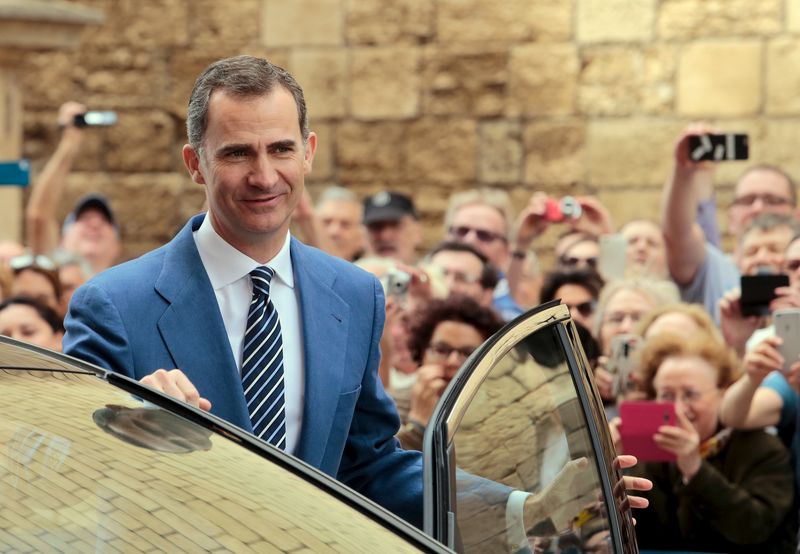MADRID (Reuters) - King Felipe will hold another round of talks with Spain's fractious political parties in a last-ditch attempt to get them to form a coalition and avoid a second national election, his office said on Tuesday.
The leaders of Spain's four main parties have until May 2 to agree on a possible government after none of them won a parliamentary majority in an election in December.
If they fail to form a government, parliament will be dissolved and new elections called, most likely in late June, raising the risk of hurting Spain's uneven economic recovery. Polls show new elections would produce a similarly inconclusive result.
After leading two unsuccessful rounds of talks since the December vote, King Felipe will again hold one-to-one meetings with party leaders on April 25 and 26, the royal household said in a statement.
Opposition parties have sidelined Mariano Rajoy, acting prime minister since his conservative People's Party (PP) lost its majority in December due to anger over his administration's austerity measures and corruption cases.
But Socialist leader Pedro Sanchez has failed to form his preferred coalition with newcomer parties, the anti-austerity Podemos and business-friendly Ciudadanos.
Party talks last week made no progress due to the political gulf between the three, namely over tax rises, government spending and an independence referendum in the Catalonia region.
Although businesses and investors have so far been calm about the deadlock, there are increasing signs of an economic impact.
Analysts at Barclays (LON:BARC) bank said on Monday they expected Spain to hold new elections and a subsequent decline in investment and consumer confidence. But they said Spain's strong economic growth of 2.6 percent for 2016 would only take a slight hit.

Earlier this month, ratings agency Standard & Poor's also warned that further delays in forming a government would postpone the budgetary tightening needed after Spain missed its 2015 deficit target.